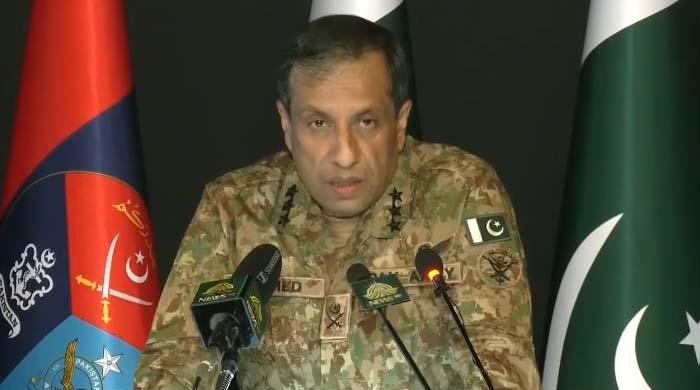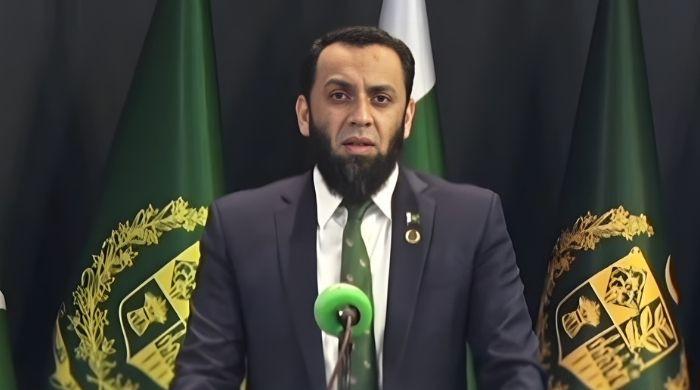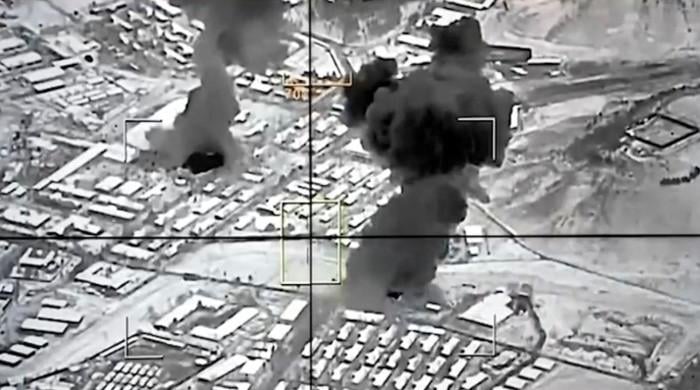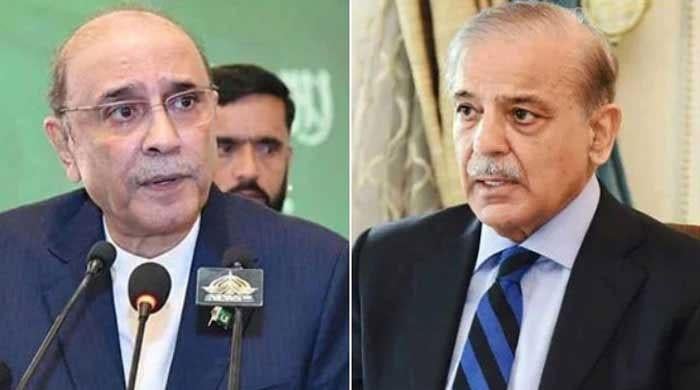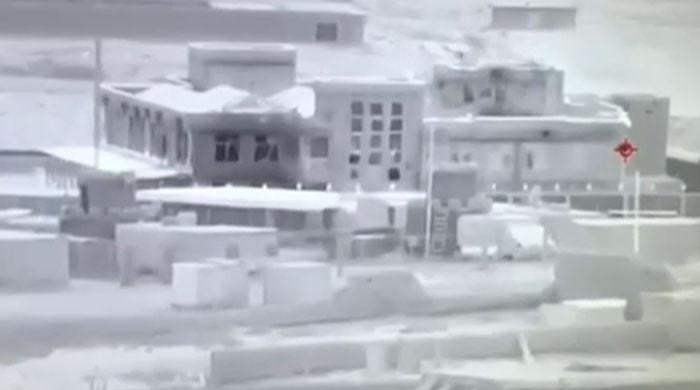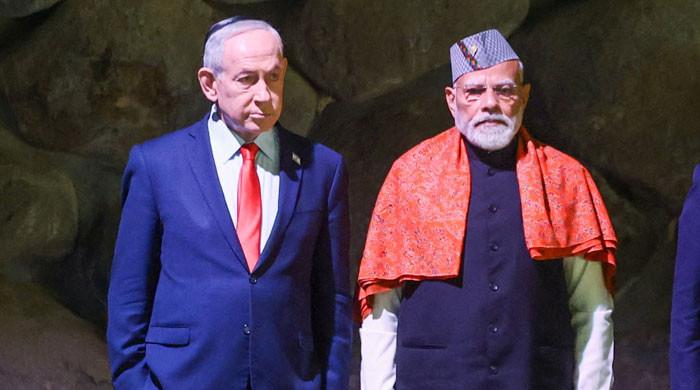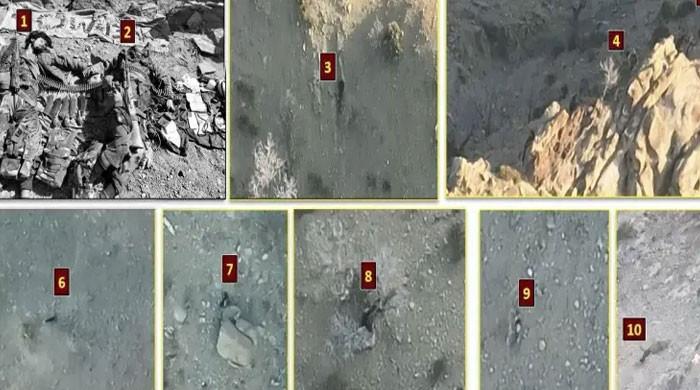Pakistan needs independent judiciary, judges: Supreme Court Justice Minallah
"If the state is involved in missing persons cases, the courts cannot do anything," says top court's judge
August 24, 2025
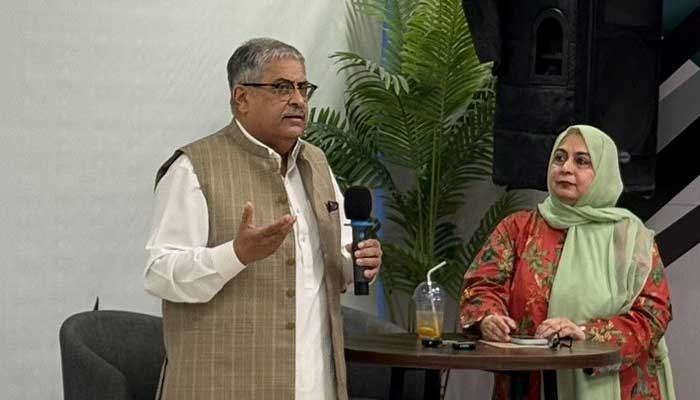
- "SC judges responsible for rights violation,"says Justice Minallah.
- He says people had faith in IHC because it had independent judges.
- Those in power not able to speak the truth for 77 years, he adds.
Supreme Court's Justice Athar Minallah has cast doubts on the autonomy of Pakistan's judicial system, saying the country needed "an independent judiciary and judges".
"If the state is involved in missing persons cases, the courts cannot do anything," Justice Minallah said while speaking during an event organised by the Defence of Human Rights.
Lamenting that it was difficult to speak the truth, and the one who does "is hated the most", the top court's judge termed the cases involving missing persons as "most difficult".
Justice Minallah's remarks come against the backdrop of allegations of human rights violations levelled by various organisations and segments of societies concerning enforced disappearances in the country — an accusation vehemently denied by the government and state institutions.
Meanwhile, the apex court judge's call for independent judges and the judiciary is to be interpreted in the context of a letter penned by five Islamabad High Court (IHC) judges to the Supreme Judicial Council (SJC) in 2024, complaining of alleged interference of members of the executive, including operatives of intelligence agencies, in judicial affairs.
The IHC judges include Justice Mohsin Akhtar Kiyani, Justice Tariq Mehmood Jahangiri, Justice Babar Sattar, Justice Sardar Ejaz Ishaq Khan, Justice Arbab Muhammad Tahir, and Justice Saman Fafat Imtiaz.
Earlier this week, CJP Yahya Afridi-led National Judicial Policy Making Committee (NJPMC) meeting decided that any judge facing external interference in judicial matters must lodge a complaint within 24 hours.
Recalling that his judgement on the missing persons issue resulted in positive reverberations for four years, he said: "I told my officer that I cannot tolerate missing persons cases in my area."
He added: "I said in the decision that no leniency will be shown to any government officer in the missing persons case."
Noting that the state's job was to protect its subjects, the SC judge stressed that the government is responsible for carrying out accountability and protecting everyone.
"Every judge of the Supreme Court is responsible for the violation of fundamental rights in Pakistan," he said. "Balochistan's girls and women are crying on the streets; we should be ashamed."
Stressing that the said issue was close to his heart, Justice Minallah recalled that the students from Balochistan approached the IHC — where he had served before — despite the forum of the Supreme Court being available to them.
"People had faith in the IHC and used to approach it from all over the country because the judges [there] were independent," Justice Minallah remarked, adding that the Baloch students' case was not within the jurisdiction of his court.
"I [even] wrote to the chief justice stressing that the violation of fundamental rights is the biggest issue [in the country].... [However] nothing happened after I wrote the letter, I had no authority."
Stressing that he always respected parliament and the elected members who have been "affected" for the past 77 years, Justice Minallah said that both the government and the judges apparently did not want to admit missing persons as an issue in itself.
"Those in the government have not been able to speak the truth for 77 years," he remarked, adding that the political parties completely change after coming into the opposition.
"If we speak the truth, the situation will change. Everyone knows the truth, but not all of us want to know the truth," the judge concluded.




